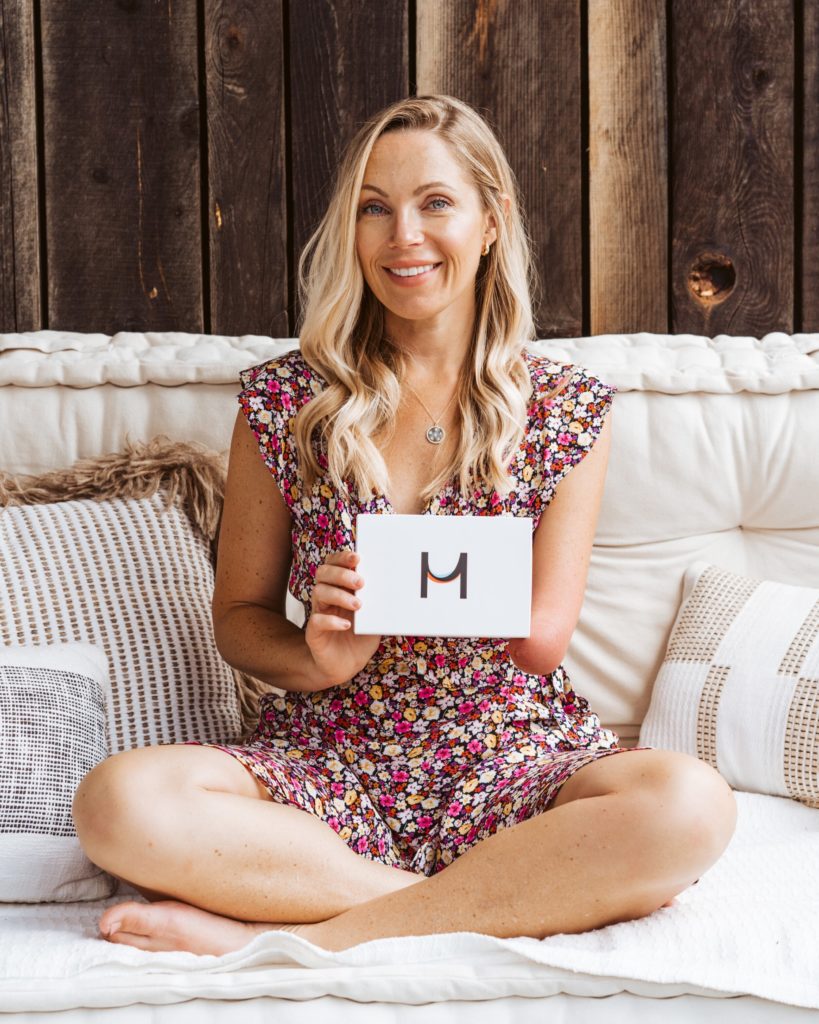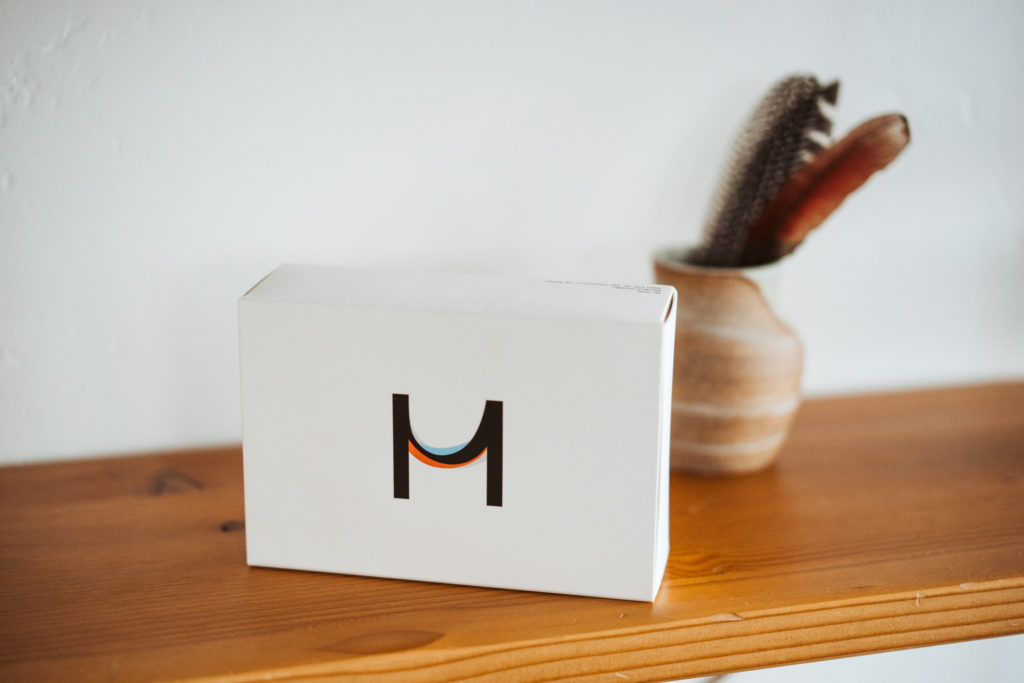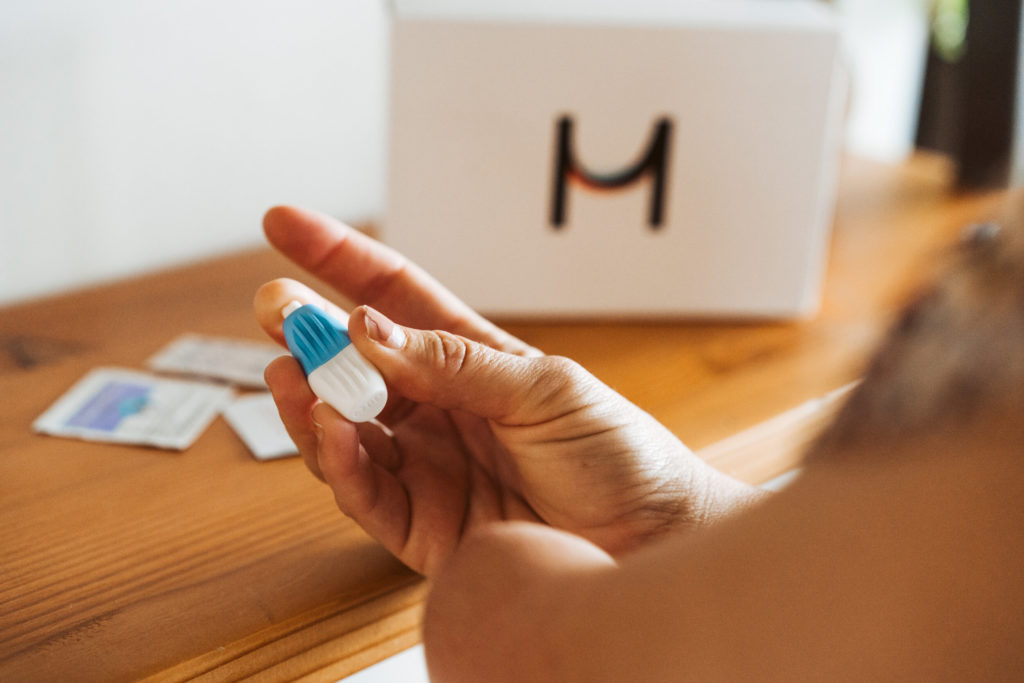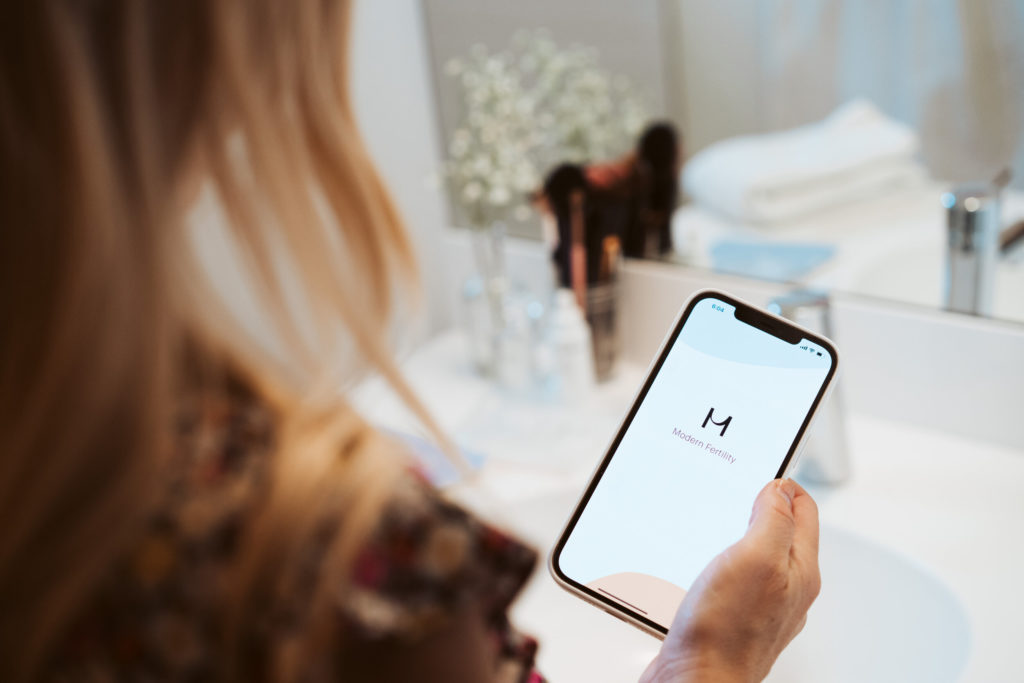
Like many women entering their thirties; I was thriving in my career, in a relationship (but far from starting a family), I was enjoying traveling and to be honest, I wasn’t sure I wanted kids—the instinct just wasn’t there for me. It’s crazy to think that back in the 70’s, the average age for a first-time mom was 21. Now it’s about 27, and in some areas, such as metropolitan cities like New York and San Francisco, it’s over 30. Regardless, I was becoming acutely aware of my “ticking biological clock” and if I should consider freezing my eggs.
[Whether you’re years away from kids or thinking of trying soon, Modern Fertility has a quiz that can guide you through your options for later on.]
At the time, my only option to learn about my fertility health was to consult my OBGYN or a fertility specialist for hormone testing and ultrasounds—which cost up to $1,500. I had no other choice really, so I sought out information from a fertility specialist in Chicago. I traveled out of state, went through all the bloodwork and ultrasound checks and was told my fertility health was “in a great place,” so I decided to fore-go the egg freezing and went on my merry way.
Two years later, life shifted gears for my partner and I, we decided we wanted to try for a baby. Today, I am 34 years old and after trying to get pregnant with no luck for 6 months, my OBGYN recommended I repeat the hormone tests to see where my levels are today. I repeated the tests in-office (another $1,500 out pocket) but this time the results were drastically lower. Receiving the news—and bill—felt like getting hit by a bus. So much changed in what felt like such a short amount of time. I’d gone from being “in the clear,” to having Diminished Ovarian Reserve (DOR).
The great news is that in this short amount of time, fertility health is becoming more normalized and women have more access to resources that can help take action towards fertility health early on. While I wasn’t able to take an at-home hormone test like Modern Fertility, I strongly advocate for women to use this incredibly helpful and affordable tool before spending thousands of dollars out of pocket at a clinic.
It’s important to know that while this test can’t provide you with the whole picture, it is a proactive way to learn about your fertility at a fraction of the cost. This test is best suited for women who want to know more about their fertility health before trying to conceive, not for women who are having difficulty conceiving. If you’re struggling to conceive after 6 months, it’s best to see your physician or reproductive endocrinologist, because there are other possible factors that could be leading to infertility. These can include fallopian tube obstruction, anatomical abnormalities in the uterus, abnormal sperm function and poor oocyte quality. A fertility specialist can perform additional tests, such as a transvaginal ultrasound, to get a more robust picture of your fertility.
But let’s back up because if you’re reading this post, it’s likely that you are at the beginning days of your fertility journey and want to know more about your hormones and ovarian reserve. Modern Fertility is the best way to get started!
Modern Fertility is the first comprehensive fertility hormone test (only $159) for women that you can take at home. The test can tell you if:
-
if you have more or less eggs than average
-
what you could expect from IVF or egg freezing
-
how your hormone levels relate to PCOS (which 1 in 10 women have)
-
your general hormone health – which is a window into your broader health!
The best part of all, many fertility specialists (like my Reproductive Endocrinologist Dr. Aimee Eyvazzadeh) will accept these test results as a starting point at consultation before beginning treatment. Some proprietary clinics will require that you repeat tests within their own labs—but still, Modern Fertility is great for YOU to know what position you’re in.
What does the hormone test look for?:
-
Ovarian reserve: This estimates how many eggs you may currently have. Women are born with a certain number of eggs that declines with age. By measuring AMH, follicle-stimulating hormone (FSH) and/or estradiol (E2), you can get a sense of your ovarian reserve and whether it’s normal, high or low for your age. Additionally, these hormones can be reflective of expected pre-menopause, and your response to fertility treatment such as IVF or egg freezing.
-
Anti-Mullerian Hormone
AMH is released by cells around your follicles and is the most important hormone for testing ovarian reserve (the eggs you have “waiting in the wings”) -
Thyroid-Stimulating Hormone
Produced by your pituitary gland, TSH regulates thyroid health -
Follicle-Stimulating Hormone
Responsible for growing follicles and starting ovulation. Too much FSH can mean your body needs extra oomph to get things moving. -
Estradiol
Sex hormone poduced by the ovaries. Since high E2 can mask a high FSH, these hormones are tested together. -
Free Thyroxine
Ft4 plays a role in thyroid health. It is tested with TSH to get a better picture of thyroid function as it relates to fertility. -
Prolactin
Stimulates milk production and pauses ovulation after you give birth. -
Luteinizing HormoneProduced by your pituitary gland, LH regulates the length of your cycle.
What you can expect from taking an at-home fertility test with Modern Fertility:
Accuracy & Physician Expertise—without the clinic price
Two physicians review your test and if results look abnormal, they’ll recommend a plan for retesting. The Modern Fertility Hormone Test is the most affordable and accessible way to check-in on fertility hormones today (plus you can use your HSA/FSA). Clinic costs: $1000+ / Modern Fertility price: $159
The only comprehensive fertility hormone test you can take in your jammies
When you request a test it will be reviewed and ordered by a physician. Your test will be customized based on your birth control (yes! you can test on birth control!). Then, they’ll walk you through taking it at home or at a lab.
Every question answered—no matter what
Modern Fertility is more than a test—they’re on call to get you the support you need to make decisions about reproductive health. Get questions answered 1:1 with a fertility nurse, you can join their weekly Egginar, and learn from others in the Modern Community.
So let’s dive into how it works:
Step 1:
Order your test: We’ll customize it based on your birth control. You can test at home or at a local Quest Diagnostics lab. Note: Hormonal birth control can affect some tests results. If you’re on birth control or take another medication that manipulates hormone levels, MF will either omit certain tests or recommend that you limit your testing to anti-Mullerian hormone (AMH) and/or progesterone, so it’s important to indicate this variable before testing.

Step 2:
Collect your sample: It’s a simple finger prick test, then pop your sample in the mail.

Step 3:
Get your fertility profile: Your results will be reviewed by a doctor and sent your way in just a few days.

Whether you’re ready to start planning a family, or aren’t sure if you want kids right now, do not wait to learn about your fertility health. Be proactive about your reproductive health. Order your Modern Fertility Test using this link to get $20 off: https://bit.ly/2NV5MpC
Comments +